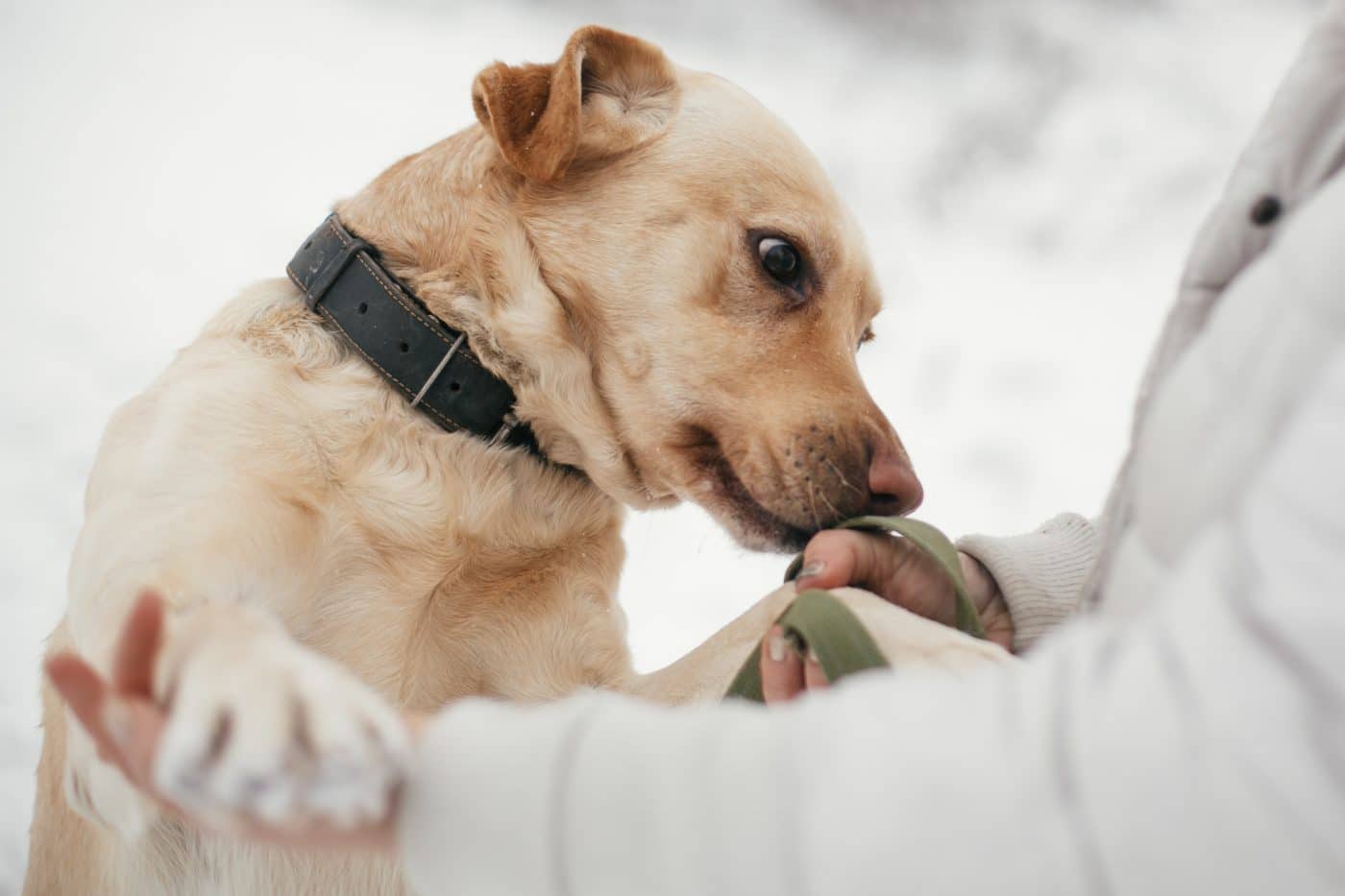 Shutterstock
Shutterstock
Dogs have an almost supernatural ability to sense when something is wrong with their humans. Their powerful noses, keen intuition, and deep emotional connection allow them to detect illness long before any symptoms appear. Subtle changes in scent, body temperature, or behavior don’t go unnoticed. They instinctively respond by staying close, acting protective, or showing increased affection. These loyal companions pick up on things humans can’t even perceive. The next time your dog seems unusually attentive, pay attention—they might be the best early warning system you have.
Superior Sense of Smell
 Shutterstock
Shutterstock
Dogs have one of the most advanced senses of smell in the animal kingdom, with up to 300 million olfactory receptors—far more than humans. This means they can pick up even the tiniest chemical changes in your body when you’re sick. Whether it’s the scent of infection, inflammation, or hormonal fluctuations, their powerful noses can detect illness before you even feel it.
Changes in Scent from Breath and Skin
 Shutterstock
Shutterstock
When you’re sick, your body releases different compounds that subtly alter the way you smell. Fevers, infections, and even metabolic changes can affect the scent of your breath and skin. Your dog’s nose is so sensitive that it can detect these shifts almost instantly, often before any medical symptoms become obvious.
Heightened Emotional Sensitivity
 Shutterstock
Shutterstock
Dogs are deeply in tune with human emotions and can sense distress, anxiety, or sadness that often accompanies illness. Even if you try to act normal, your dog can pick up on the slight changes in your voice, body language, and energy levels. If you notice your pup sticking extra close to you when you’re feeling under the weather, they’re likely responding to these subtle emotional cues.
Changes in Routine or Behavior
 Shutterstock
Shutterstock
Dogs thrive on routine, so any changes in your daily habits will be immediately noticeable to them. If you’re sleeping more, skipping meals, or not engaging in your usual activities, your dog will pick up on the shift. These behavioral changes signal to your pup that something is different, often prompting them to be more attentive and protective.
Changes in Your Heartbeat
 Shutterstock
Shutterstock
Dogs have an astonishing ability to hear and feel subtle variations in your heartbeat. If illness causes your heart rate to become irregular or slower than usual, your dog may sense the change before you do. Their acute hearing allows them to detect tiny shifts in rhythm, making them naturally aware when something isn’t quite right.
Heightened Sensitivity to Your Movements
 Shutterstock
Shutterstock
Your dog pays close attention to how you move, and any changes in your posture, gait, or energy levels can signal to them that something is off. Whether you’re moving more sluggishly, favoring one side, or struggling to get up, your dog will notice. Many dogs respond by staying near, offering comfort, or even adjusting their own behavior to match yours.
Detection of Chemical Signals
 Shutterstock
Shutterstock
When you’re sick, your immune system releases specific chemicals as it fights off infection, and dogs can pick up on these invisible signals. Their noses are so finely tuned that they can detect these subtle metabolic changes, often long before you experience noticeable symptoms. This ability allows them to sense illness even before medical tests confirm it.
Changes in Pheromone Production
 Shutterstock
Shutterstock
Your body naturally releases pheromones that change when you’re ill, and dogs are experts at detecting these shifts. Pheromones communicate subconscious messages about your health and emotions, and when you’re not feeling well, your body sends out different signals. Dogs instinctively respond to these changes, often by staying close or becoming more protective.
Dogs’ Ability to Detect Cancer Cells
 Shutterstock
Shutterstock
Some dogs have been trained to detect cancer, but even without formal training, many dogs can smell the unique scent cancer cells produce. Studies have shown that dogs can detect cancer through breath, urine, or even skin samples—sometimes before a diagnosis is made. This incredible skill highlights just how powerful their sense of smell truly is.
Dogs’ Response to Your Breath
 Shutterstock
Shutterstock
If you’re battling a respiratory illness like the flu or a cold, your breath may change in both scent and pattern. Dogs are highly sensitive to these variations and can detect when your breathing becomes shallow, labored, or different in any way. This heightened awareness often causes them to stay closer to you, offering comfort and reassurance.
Sensitivity to Subtle Physical Signals
 Shutterstock
Shutterstock
Dogs have an uncanny ability to sense physical changes like fever, chills, or trembling. Whether through direct contact or simply being near you, they can feel the difference in your body temperature. If you’ve ever noticed your dog snuggling extra close when you’re sick, they may be responding to these subtle physical cues.
The Ultimate Health Guardian
 Shutterstock
Shutterstock
Animals have an incredible way of detecting illness, often before humans notice any symptoms. Their sharp senses allow them to pick up on subtle changes in scent, body temperature, and behavior. Even small shifts in routine or mood can signal to them that something isn’t right. They stay alert to these signs and may become more affectionate or protective when sensing illness. The next time a loyal companion seems unusually attentive, pay attention—they might be picking up on something important. Their instincts make them remarkable guardians of human health.





